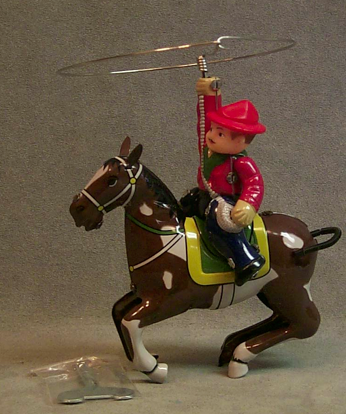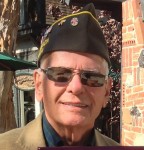Our 11-year old granddaughter received an assignment by her grammar school teacher to write a biography of one of her favorite family members. For some inexplicable reason she chose me. Gathering information for her report, she asked me some 40 or 50 questions, one of which was who was my best, boyhood friend. My reply unleashed the following “buried in memory” anecdote (relevant at this time of the year); one that I want to share with you.
I believe it was 1936 or 1937. I was 7 or 8 years old. We were living in the just burgeoning, FDR/New Deal-Washington D.C. Those were tough, economic times for the nation then limping through the Great Depression. In spite of FDR’s hopeful fireside radio chats (there was no TV then) and Democrats singing “Happy days are here again,” it seemed that there was no light at the end to that dark tunnel except for those joining the new, federal bureaucracy in D.C. The times were also tough for my father who epitomized Arthur Miller’s Willie Loman in trying to make a living working a nickel and dime territory for the Metropolitan Life Insurance Co.
Business was so bad that year his salary was dropped from $45 to $40 a week. Now $5 a week was important money then for most families. As I recall, our rent was $50 a month and with gas, electric and food (new clothes would have to be put off to another time) there was not much if any left over. Some months, of course, this bill or that was paid late. Since most people were in a similar bind, there was more latitude and patience in collections than today.
There was also the possibility that my dear father, who had a powerful penchant for the ponies, may have blown some salary at Pimlico Racetrack in Maryland. Also, my mother, a loving but no nonsense lady, controlled the family finances with Scrooge-like parsimony (Barack and Jerry in Sacramento could sure use her today). Whatever, times were tight
As if to exacerbate the difficult days, it was a particularly unpleasant winter. Dark and dreary, cold and wet, with seemingly never ending snow and sleet, a bleak Christmas and end of the year were approaching. In spite of my knowing things were lean, I nevertheless, like every other kid, anticipated getting some kind of Christmas or Hanukah present. Like many immigrants (they were very young children when they arrived from Europe around 1900), my parents, not religiously ritualistic, felt a need to assimilate into American society. Thus, they did not distinguish much between the two holidays. Also, in those years Hanukah was not so competitively (gift-wise) celebrated as it is now. For us Christmas was the day for present sharing.
That Christmas Eve I remember listening to Lionel Barrymore do a particularly scary radio rendition of Dickens’ “A Christmas Story.” Finally falling asleep, I awoke before 6 in the morning, bounded out of bed, and searched for whatever bauble my folks had gotten me. There was none. Neither I nor my older brother received a thing (not even unappreciated socks or underwear). While he brushed it off, I brooded the rest of the morning. Although understanding why, I had difficulty overcoming my disappointment. Nothing was said. The holiday was ignored.
Early that afternoon, my best friend, Bobby Kilroy, who lived across the apartment court from us, called and invited me over to play and enjoy the day with him. Bobby and I were very close. He would often play hooky from school on Jewish holidays so that we could play together, and several times I tried to go with him to his class at St Mary’s Catholic school near Grant’s Circle. The good sisters, knowing of my heritage, always gently persuaded me to return home.
We played football and baseball and all of the games kids played then. Several times we and other friends would hike to one of the still remaining trenches dug around Washington’s perimeter to protect the city against a possible attack by Lee’s forces, and, would you believe, play war by shooting bb pellets at each other. Fortunately, we were poor marksmen and no one was hurt. I presume that those trenches, hurriedly built during the battle of Gettysburg “just in case,” unfortunately have been filled in and are under some housing or business development now.
Bobby’s mother, a widow, would be called a single parent today. His father had been a B & O Railroad employee, and with her minor, filing clerk position at some federal agency and what she received from his meager pension, she managed to keep afloat.
Hesitant at first because I knew he would be showing me his presents, I agreed and walked to his apartment. When I entered and saw the empty packages under the scrawny, sparsely decorated tree, I felt a little envy, but managed to conceal it. His mother prepared a snack of “Depression” sandwiches (peanut butter and bananas on Wonder bread), we ate and then played with some of his new games. In time the ultimate question was asked, and I had to confess, choking back tears, that I had received nothing. Mrs. Kilroy, listening, hugged me, and said that the day was not done, and surely something would show up.
We continued our games, ate too much candy and in time my gloom was gone. As I was about to return home, his mother, who had gone out and returned, scratched her head as if in bewilderment, and exclaimed that she could swear she saw a package under the tree with my name on it. Excited, but incredulous, I searched and sure enough there was indeed a small package with my name on it. Encouraged to open it then and there, I tore the wrapping off, and there it was. A wind-up cowboy with a lasso that you placed on the rim of a cup or glass and watched as it traveled around the circumference swinging the lasso. Now in those years that damned toy must have cost less than a dollar, but I have to tell you I have never been more overjoyed in my life. Tears rolled down my face as I hugged Mrs. Kilroy and thanked her.
I played with that toy every day for some two weeks. When it broke, I did not care. The important thing was that I had been remembered. When in 1941 we moved to New Jersey, I lost track of Bobby. Years later, when I was in CIC training at Fort Holabird in Baltimore, and recently on the Internet, I searched for him, but without success. I’ll always remember Bobby and his mother, who, though having her own tough time financially, made a little boy happier than she could have ever imagined.
So, please take the time and effort to brighten the day for someone in need or who just needs a little appreciation. And…to everyone a joyous Christmas, Hanukah, Kwanzaa or whatever you’re celebrating and the very best of a healthy and fulfilling New Year!

Arnold Silverman, commander of the Laguna Beach VFW Post 5868, served in the Korean War.





